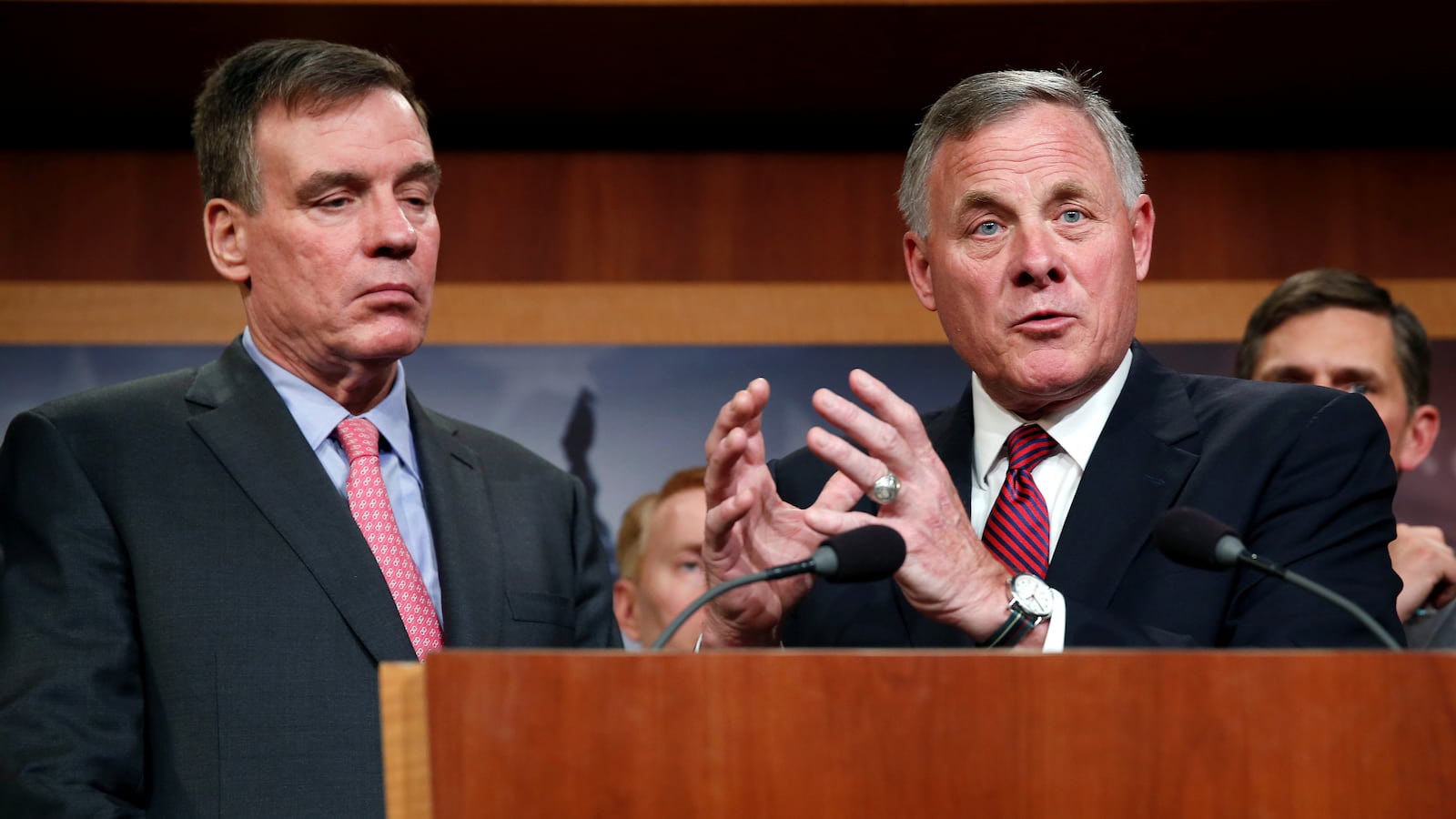Russia’s online propaganda before and during the 2016 election exploited American racism to benefit Donald Trump, the Senate intelligence committee found in a report released Tuesday.
“No single group of Americans” were more targeted by Russia’s extensive social-media manipulation efforts than were African-Americans, the Senate panel concluded, bolstering prior reporting from The Daily Beast and others. “By far, race and related issues were the preferred target of the information warfare campaign designed to divide the country in 2016.”
The Senate report confirmed much of the contours of what has been known about the Russian social-media campaign, though it pointedly went further than did the 2017 intelligence agencies’ assessment in finding that the campaign was designed to aid then-candidate Trump.
It’s also a step beyond the generic explanation that Russia was out to sow “chaos” in American politics.
A team of Kremlin-connected trolls spent years impersonating Americans across Facebook, Instagram, YouTube, Tumblr, Twitter, and elsewhere to destabilize the internal politics of Russia’s foremost geopolitical adversary. They knew what to exploit. One indictment involving the so-called Project Lakhta cited a co-conspirator explaining they were to “aggravate the conflict between the minorities and the rest of the population.”
They fed white supremacy to a white audience already on a grievance binge. They pretended to be an American Muslim organization. They amplified reactionary sentiments involving immigration, gun rights, and veterans, demonstrating how well they understood the fulcrums on which American politics precariously balanced. Years before Trump’s impeachment, they threatened civil war in the event of his removal from office.
St. Petersburg-based troll farm the Internet Research Agency also understood the power of social media platforms with a depth that eluded their ownership. Facebook initially dismissed the impact of the trolling, only to admit by November 2017 that 150 million Americans were exposed to it across Facebook and Instagram. It spurred a seismic backlash to the obscenely wealthy companies. Once adored, now they were summoned to Capitol Hill to answer for their role in hollowing out democracy. And while the efficacy of the Russian propaganda initiative might never be precisely quantified, broadcasting propaganda across Mark Zuckerberg’s empire cost the Internet Research Agency only $46,000.
Even when they used broken English, they were fluent in Internet. One imposter account on Twitter, @ten_gop, interacted with Donald Trump Jr., Michael Flynn, and Fox News. What started on the internet did not stay there. As The Daily Beast first reported, they used Facebook to organize real Americans into attending rallies in 17 cities. Some, in Florida and Pennsylvania, were explicitly pro-Trump. Trolls also pretended to be civil-rights activists to get Americans protesting police violence.
Last year, then-special prosecutor Robert Mueller indicted 13 people for their involvement in the propaganda effort.
Following the release of the documents, the committee’s vice chairman Mark Warner (D-VA) added that their findings also suggest the Kremlin has not ceased its propaganda efforts. “I cannot stress this enough: the Committee found that Russia’s efforts continue to this day,” he tweeted. “In fact, we found that this activity increased, rather than decreased, after Election Day 2016.”
While senators offered cautious praise for the FBI’s efforts at tackling foreign influence in the years since the election, the committee called it “troubling” that the FBI monitored Russian social media influence campaigns “mostly through contractors” during the 2016 campaign. The contractor the FBI used sampled just one “overtly pro-Russian network of 13 Twitter accounts and their followers” and the Bureau never communicated any of the underlying analysis to Twitter.
The subject of Russian meddling in elections after 2016 is still apparently a sensitive subject as broad sections of the report’s discussion of “ongoing IRA activities” were redacted.
Going forward, the intelligence committee wrote that foreign propagandists could exploit new technologies to once again catch the intelligence committee off guard as Russia did with its use of social media in the 2016 election. In particular, senators expressed concern that the use of “deepfake” video technology will create “more realistic and convincing propaganda material” and “advanced micro-targeting” which could allow foreign propagandists to more effectively target audiences within the U.S.







